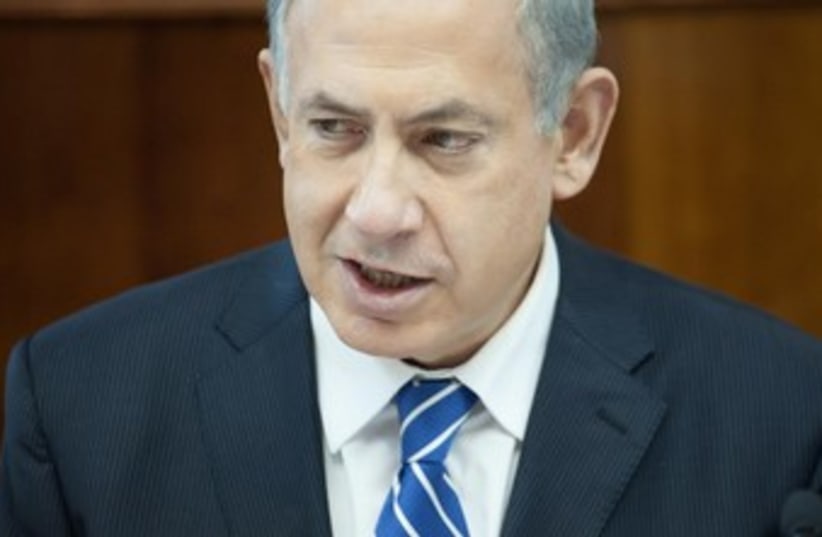Presenting the truth about Jewish ties to the Land of Israel is not harmful to peace, Prime Minister Binyamin Netanyahu said Sunday, as he dismissed UNESCO’s explanation for suspending its exhibit on that topic.“Negotiations are based on facts, on the truth, which is never harmful,” Netanyahu told his cabinet at its weekly meeting on Sunday. “The one-sided approach toward Israel does not advance peace – it pushes peace further away.It strengthens the refusal of the PA to make actual progress in the negotiations.”
The United States and Canada have urged the United Nations Educational, Scientific and Cultural Organization to push forward with the exhibit, “People, Book, Land – The 3,500-year relationship of the Jewish People with the Holy Land,” which had been slated to open Monday at UNESCO’s Paris headquarters.Israel, Canada and Montenegro sponsored the exhibit.One day after sending out invitations to the exhibit, UNESCO last Tuesday postponed it in response to a letter from the 22 members of its Arab Group, which said they feared it would harm the peace process. No new date has been set to for the exhibit.The Los Angeles-based Simon Wiesenthal Center, that paid for the exhibit and organized it along with UNESCO, plans to hold a press conference on Monday in Paris to protest the postponement. At the press conference, the Wiesenthal Center will display the exhibit that begins with the Biblical Jewish forefather Abraham and ends with the State of Israel as a technological “Start-up Nation.”A Monday press conference will also be in held in LA, at the center’s Museum for Tolerance, which UNESCO director- general Irina Bokova visited in 2012 to launch the formal planning process for the exhibit. At the time, its formal title used the phrase “Land of Israel,” instead of Holy Land.Hebrew University of Jerusalem Prof. Robert Wistrich, who the center hired to author and oversee the exhibit, told The Jerusalem Post he was stunned by the rapid turn of events.“It’s a slap in the face. It’s an insult to the entire Jewish people,” Wistrich said. He explained that he had worked on the exhibit for close to two years. Each aspect of the exhibit, he said, was vetted and approved by a UNESCO panel of experts that scrutinized every detail with a finetooth comb.At each stage he answered their concerns, until both the center and UNESCO were satisfied, Wistrich said.“From the beginning they [UNESCO] were aware of the sensitivities of this exhibit.Their experts were quite tough. They needed to be satisfied on many points,” Wistrich said.There was plenty of time to find alternatives to anything UNESCO perceived to be problematic or political in the exhibit, he said, but it met all of UNESCO’s historical, scientific and cultural standards.“To pretend at two minutes before midnight that this could harm the peace process is mind-boggling in its cynicism,” he said. “They never would have dared to do this if it had been Arab exhibit.”There is now a span of “3,500 years of Jewish history that has been put under lock and key on their premises.There is something symbolic in a particularly ugly way in that fact,” Wistrich said.He blamed the US for first linking the exhibit to the peace process, when it rejected a request by the Wiesenthal Center to become a country sponsor of the exhibit.In January, Kelly Siekman, who directs UNESCO’s office for the State Department, told the center in an email that her country supported the exhibit and would be happy to sponsor a ceremony or event connected to the exhibit.The US only cosponsors UNESCO exhibits for which it has oversight on content and development, she said.“At this sensitive juncture in the ongoing Middle East peace process,” she said, “and after thoughtful consideration with review at the highest levels, we have made the decision that the United States will not be able to cosponsor the current exhibit during its display at UNESCO headquarters.”Netanyahu: UNESCO Land of Israel exhibit not harmful to peace
PM: Talks are based on facts, truth, which is never harmful; Wiesenthal Center to hold Paris, LA press conferences.
